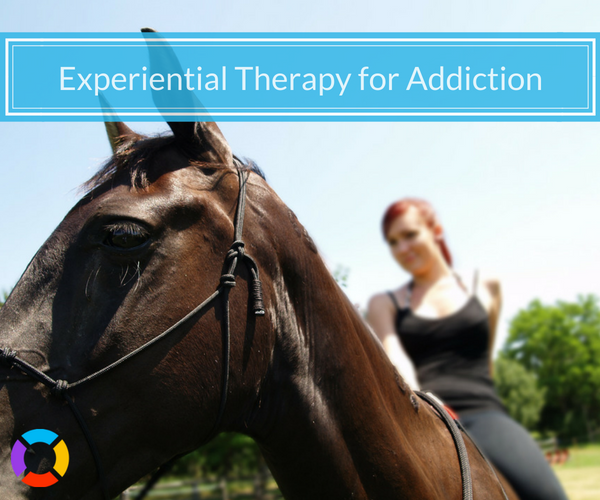Experiential Therapy

Experiential therapy gets patients out of the traditional recovery setting and provides hands-on options that help them work through their substance use disorders. This type of program has been known to be effective for many people, especially teens. It can take place in different environments and different times in one’s recovery, depending on the person’s situation.
Help is available to discuss your treatment options and to help you find treatment facilities in your area. Just call 800-996-6135 to start your recovery journey today.
What Is Experiential Therapy?
Experiential therapy is an alternative type of addiction treatment that gives patients a way to actively participate in their recoveries. It is also an effective program for those who are uncomfortable with talk therapy. This is one reason why it is so often embraced by adolescents.
Some of the most popular forms of experiential therapy include:
- Wilderness or adventure therapy: a program where patients are asked to learn survival techniques in the wilderness.
- Recreation therapy: a program where patients participate in hands-on, recreational therapy activities for substance abuse. These include rope courses, rock climbing, hiking, etc.
- Art therapy: a program where patients learn a new artistic skill like playing an instrument, painting, sculpting, or acting.
All of these therapies are focused on getting involved in a new kind of activity while dealing with substance abuse issues. These programs can be challenging and intense, but many patients find them extremely rewarding as well. They also rely heavily on peer support, which according to SAMHSA, is a necessary part of treatment.
How Does Experiential Therapy Work?
Experiential therapy works by immersing a person in this new activity and allowing them to rebuild their lives at the same time. Treatment may be confrontational, especially in the case of wilderness or recreation therapy, but it can be effective for those who cannot get the same results with traditional programs.
- A new activity such as rock climbing or sculpting can help someone who has buried emotions begin to unearth them. In the case of art therapy, the patient can begin to understand and express those emotions through the art they create. In the case of recreational therapy activities for substance abuse, the physical challenge can bring about a new understanding of emotions.
- Not everyone can sit in a room and discuss their feelings. Many people, especially adolescents and adults with long-term substance use disorders, find it hard to work through their addiction issues in traditional ways. This is an alternative that can be effective for many people.
- Wilderness therapy expects all individuals to work together and keep one another safe. This is at the core of the social support many people need during addiction treatment, and it can be especially helpful for teens.
- There are often discussions during experiential therapy with counselors, but they are facilitated by the activity. The counselor might ask a patient, for example, how they felt doing a certain activity and what they gained from it.
Different techniques are used in different experiential therapy programs.
- Animal therapy: Horses are often used during wilderness or recreation therapy to help patients cope with their substance use disorders. The bond they build with these animals helps them become stronger in their recoveries.
- Eye Movement Desensitization and Reprocessing: Patients learn to visualize traumatic events from their past and then are prompted to move their eyes in certain ways. This can be effective in helping patients control emotions and feelings of stress.
- Building Responsibility: Experiential therapy programs that require recreational activities ask that patients develop a sense of personal responsibility. They must follow the rules, protect themselves, and protect one another.
- Self-expression and Self-esteem: Art therapy for recovery helps patients learn to better express their emotions and build feelings of self-esteem.
Experiential therapy is a broad category, but there are many effective programs that fall under this option for addiction treatment.
Call now to find recovery programs that offer experiential therapy!
When Should Experiential Therapy Start?
Experiential therapy shouldn’t start until the patient is stable in their recovery. This can mean detox treatment should occur first and experiential therapy afterward. However, many patients with co-occurring mental disorders find experiential therapies to be extremely helpful. This means some people with long-term psychological symptoms may want to seek this option before all withdrawal symptoms have subsided.
Starting experiential therapy should occur on a patient-by-patient basis, as not everyone is ready to begin a program like this right away. Art therapy for recovery requires concentration many individuals don’t have early on. It can also be dangerous to take part in recreational therapy activities for substance abuse if you still have physical withdrawal symptoms. It is important that each and every patient has their own timeline.
How Long Does Experiential Therapy Last?
Experiential therapy lasts a few months or longer, because the patient needs time to build up their new skill. Many people attend wilderness therapy for 6 months or so in order to get the most benefit from the program. Again, it can depend on the patient and/or the program one chooses.
Where Can I Find Experiential Therapy?
Experiential therapy programs exist all over the country, and many traditional facilities have started offering some of these options. It is important to seek out the programs you believe will best suit your needs.
Seek Safe, Effective Detox Treatment Today
Call 800-996-6135 now to find detox and rehab centers near you. We can help you find programs that offer options like wilderness, recreation, and art therapy for recovery.
Sources
- American Psychological Association. (2013). Therapy Gone Wild.
- Substance Abuse and Mental Health Services Administration. (2018). Treatments for Substance Use Disorders.
- Society & Animals. (2007). The Effectiveness of Equine-Assisted Experiential Therapy: Results of an Open Clinical Trial.
- Journal of Addictions Nursing. (2014). The Use of Art and Music Therapy in Substance Abuse Treatment Programs.

